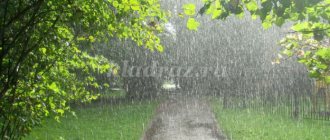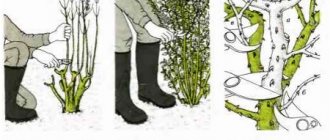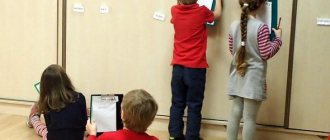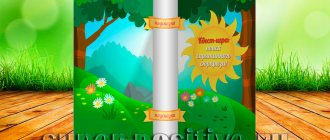Game conditions options
Thus, a prerequisite is to find the keys (figuratively or literally) and solve the overall problem of the game. Everything else can be changed.
- Assignments can be in one subject (on the same topic) or on different ones.
- These can be questions or practical tasks (or even better, alternate between them).
- Players may or may not know in advance what area of knowledge the question will be from.
- Players must complete a certain number of challenges (regardless of the outcome) or can complete the challenges by obtaining a certain number of keys.
- Keys are given only for successfully solving the task or in any case (if the task is not completed, a key and a penalty point are given, the number of penalties is taken into account when determining the winner).
Of course, the game format allows you to make any task more fun. But still, I think it’s better to choose the most entertaining tasks that are more appropriate not for the lesson, but for an extracurricular event.
Quest tasks
All tasks in the quest have a fun plot, colorful design in a school style, with tasks on the subject of subjects, as well as detailed instructions with tips for conducting the quest and a mock-up of an envelope from the National Academy of Sciences. Each correctly solved task leads participants to a new cache. Until the students find all the hiding places and solve all the hidden tasks, the gifts will not be found.
Description of the tasks in the quest: ◊ Geography lesson - a fun task on associative thinking, in which students need to find out what kind of country it is by depicting the sights of different countries and write their name in the answer boxes. Having guessed all the countries correctly, using a special code you can find out which teacher is the keeper of the next cache or find out the name of the cache. ◊ Math lesson - a logical task in which students will have to solve a funny equation, the variables of which are the dates of their favorite holidays. Having solved the mathematical equation correctly, high school students will learn a nine-digit number that will help decipher which teacher is the keeper of the next cache or find out the name of the secret cache. ◊ Physics lesson - a task for logic and attentiveness. In this task, participants will have to remember the physiological properties of liquid and determine the order in which glasses should be filled. The serial number of the glass that is filled first will tell you which teacher is the keeper of the next cache or find out the name of the secret cache. ◊ Physical education lesson - an attentiveness task in which you need to indicate the involvement of a variety of balls in sports games. If you do everything correctly, you will immediately know where the secret cache is hidden or which teacher is the next keeper of the cache. ◊ History lesson - a task on logic and knowledge of history, in which you need to find a match for each God and Goddess of Egypt according to their historical description in order to find out where the secret cache is hidden or which of the teachers is the next keeper of the cache. ◊ Biology lesson
- an attentive task in which you need to help a bee collect nectar from white daisies.
If you pave the way correctly, then such a flight of a bee will definitely tell you where the next secret cache is hidden. ◊ English lesson -
a task for basic English knowledge.
By solving funny English riddles and writing down the answer to each of them in Russian, you will know who is the keeper of the cache or where the secret cache is hidden. ◊ Chemistry lesson -
an interesting task to learn about warning signs.
For example, radiation, toxic substances, biological hazards, etc. Students will have to correctly determine which sign and what textual information it carries. If the text warning is correctly combined with the image of such signs, participants will learn the name of the secret cache or who the keeper of the next cache is. ◊ Literature lesson -
a task on knowing the names of poets and writers.
If you find a mistake in each surname and choose the correct name for each poet and writer from the list, then the participants will be able to decipher where the next secret cache is. ◊ Ciphertext is a final puzzle where participants have to decipher pictured text on the school computer.
Having decrypted it using an English keyboard layout, the resulting text will tell you where the secret cache is hidden. You can read reviews about our quests here “Reviews”.








